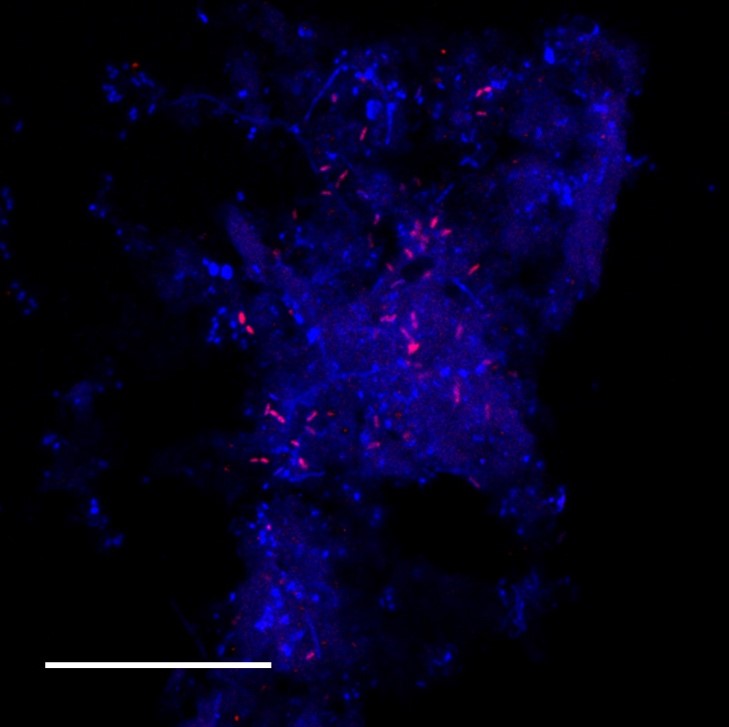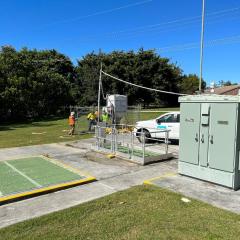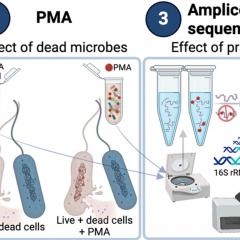
A propane eating microbe has been discovered – and University of Queensland researchers say it could play a critical role in global climate change and air pollution control.
This newly discovered microbe can turn propane into carbon dioxide while breathing nitrate instead of oxygen.
The research team, a collaboration between The University of Queensland, Queensland University of Technology, and Southern Cross University, discovered the novel propane degrading microbe belonging to a new order within the class Symbiobacteriia.
Propane is often seen as a clean gas and not considered harmful to the environment because it has a lower carbon footprint than other fuel sources. However, propane accounts for up to 10% of the content of natural gas, the extraction and consumption of which is a major contributor to climate change.
UQ’s Australian Centre for Water and Environmental Biotechnology Deputy Director, Associate Professor Jianhua Guo said this newly discovered organism plays a critical role in propane emissions and consumption.
“As one of the substantial constituents of natural gas, propane is a less potent greenhouse gas compared to methane. However, it can react with the hydroxyl radical, resulting in increased production of ozone, which is a harmful pollutant at ground level” he said.
“Propane also contributes to the formation of nitrogen dioxide and peroxyacetyl nitrate, two other major air pollutants.
“Theoretically, removal of propane coupled with nitrate reduction is a thermodynamically feasible process.
This made us wonder whether an anaerobic microorganism behind this process could be found – so we started hunting for it.”
UQ researcher and paper author Dr Mengxiong Wu said the production and consumption of propane by microorganisms could play a significant role in managing climate change caused by natural gas leaks from deep sea sediments as well as helping to manage the constant release of propane from activities such as biomass burning, fossil fuel combustion, natural gas processing and petroleum refining.
“Given the simultaneous presence of natural gas and nitrate in various aquatic environments, we believe this microbe could degrade colossal amount of propane, preventing it from reaching the atmosphere,” said Dr Wu.
“It took more than a year to get the initial indication that these microbes actually existed as theorised, then another 3-4 years of multiple types of experimentation to actually figure out how they degrade the propane,” said Dr Wu.
“The discovery of such microbes could rewrite textbooks and represents an overlooked link between global carbon and nitrogen cycling. It potentially plays an important role in regulating propane emissions to the atmosphere, thus reducing the negative impact of propane on air quality and on climate.”
Using advanced meta-omics techniques, UQ PhD student Jie Li reconstructed a complete genome of the microbe and its metabolic pathways.
UQ’s research group led by Associate Professor Guo, and QUT’s research group led by Dr Simon McIlroy, have enriched and sequenced the complete genome of this novel microorganism.
“The research is significant as it expands our knowledge of the diversity of microbial lineages on Earth, and further demonstrates the importance of microorganisms to natural gas emissions by identifying another microbially-mediated link between the global carbon and nitrogen cycles,” QUT’s Dr McIlroy said.
The research, titled Anaerobic oxidation of propane coupled to nitrate reduction by a lineage within the class Symbiobacteriia, was published in Nature Communications in October 2022.
The paper is co-authored by Dr Mengxiong Wu, Ms Jie Li, Ms Terra Stark, Professor Zhiguo Yuan and Associate Professor Jianhua Guo at The University of Queensland; Dr Andy Leu, Professor Gene Tyson and Dr Simon McIlroy of Queensland University of Technology; and Dr Dirk Erler at Southern Cross University.
Media: Associate Professor Jianhua Guo, jianhua.guo@.uq.edu.au, +61 7 334 63222;



